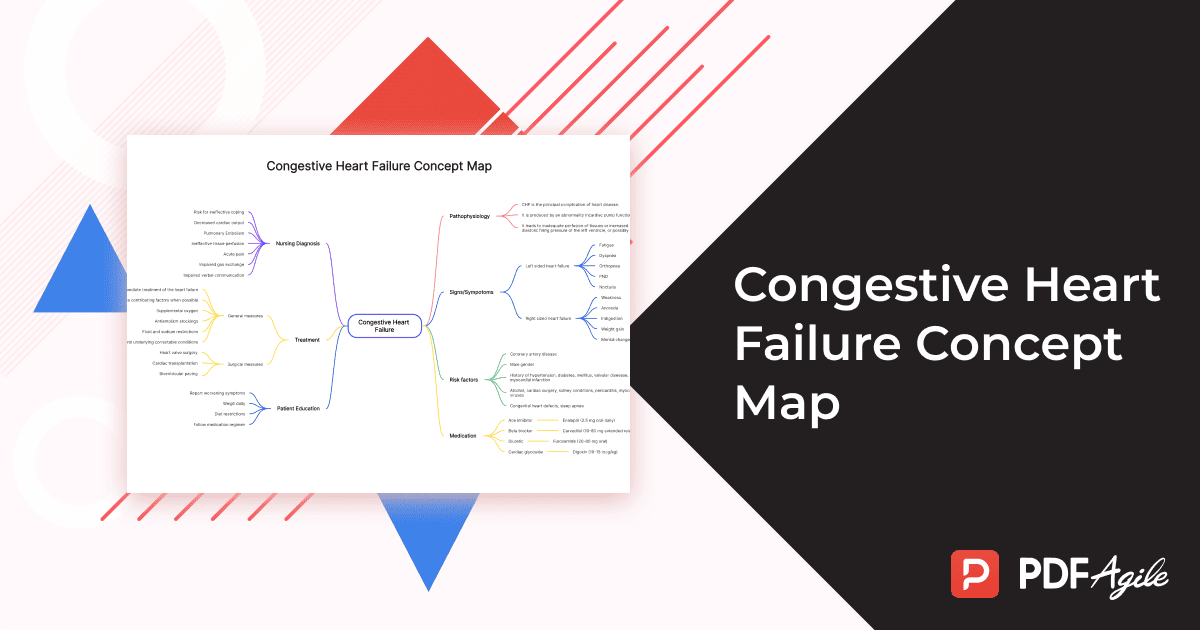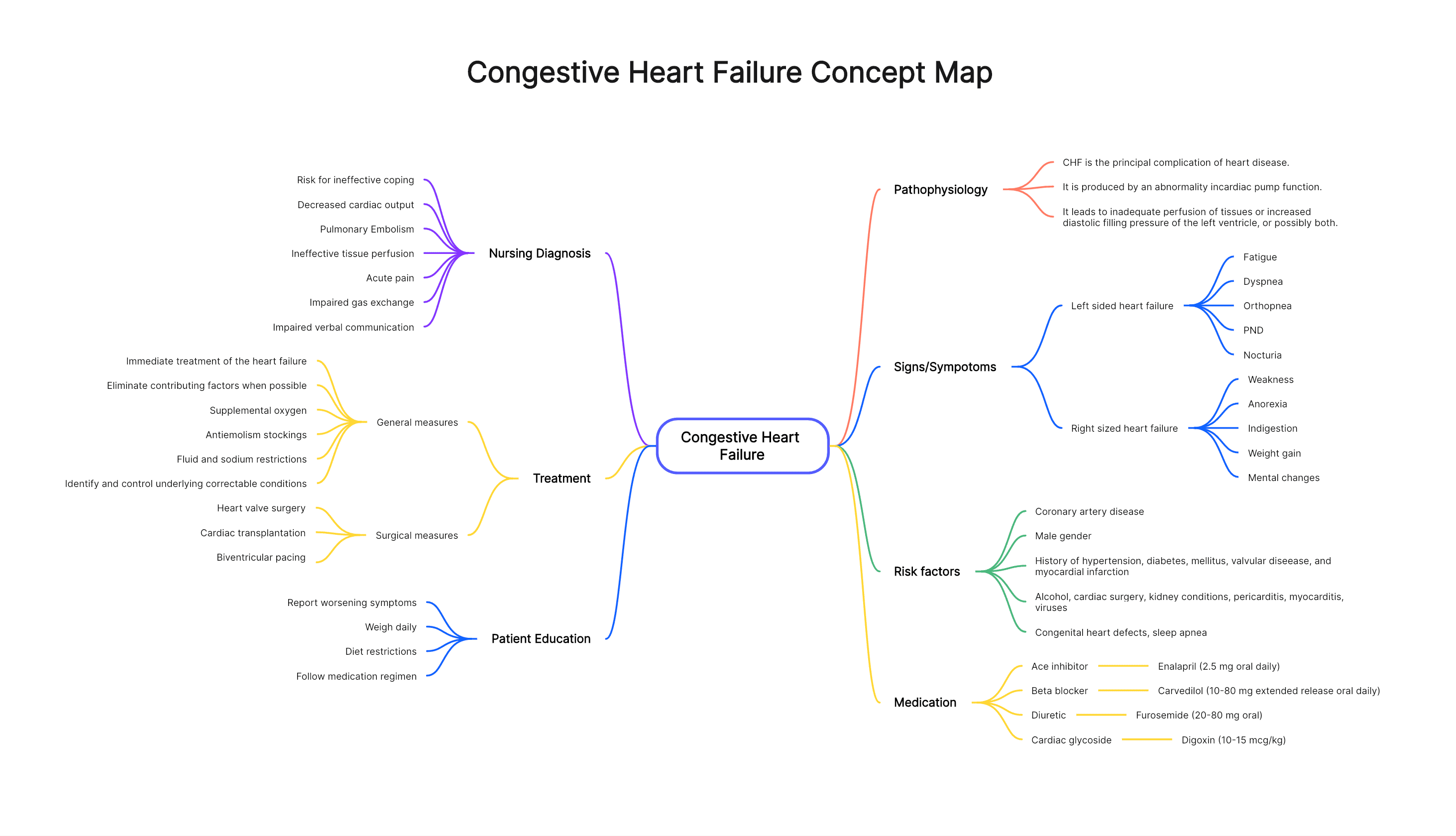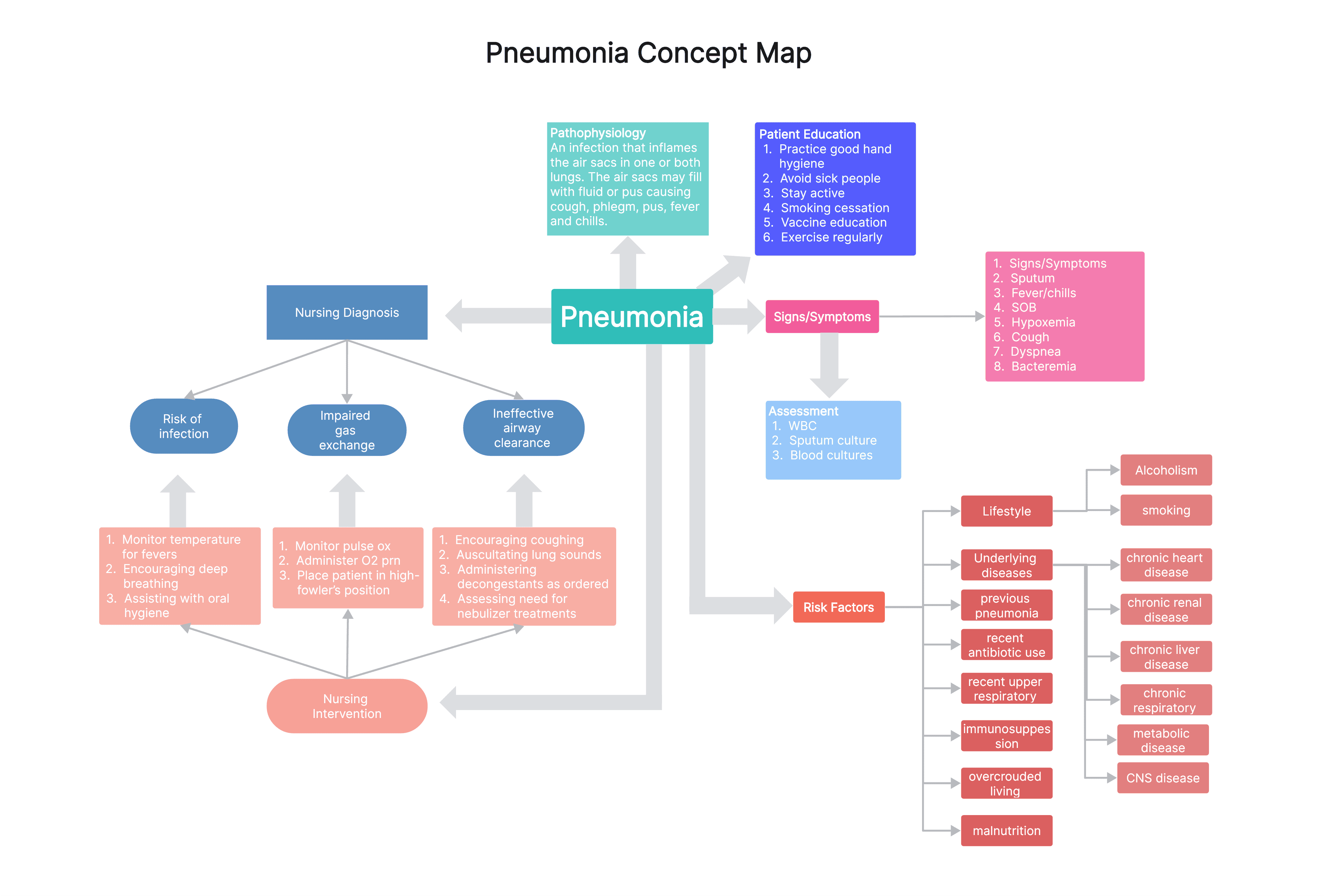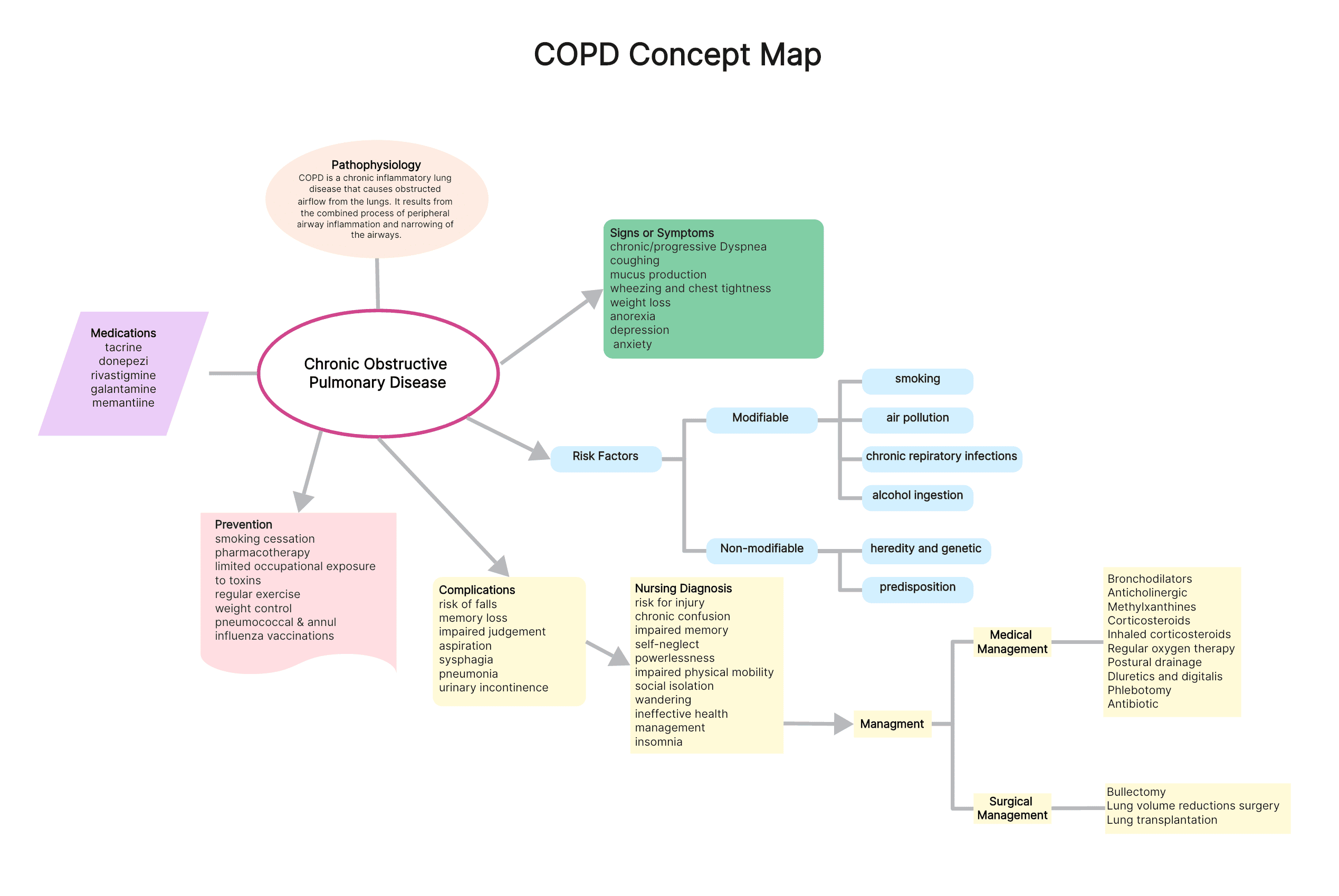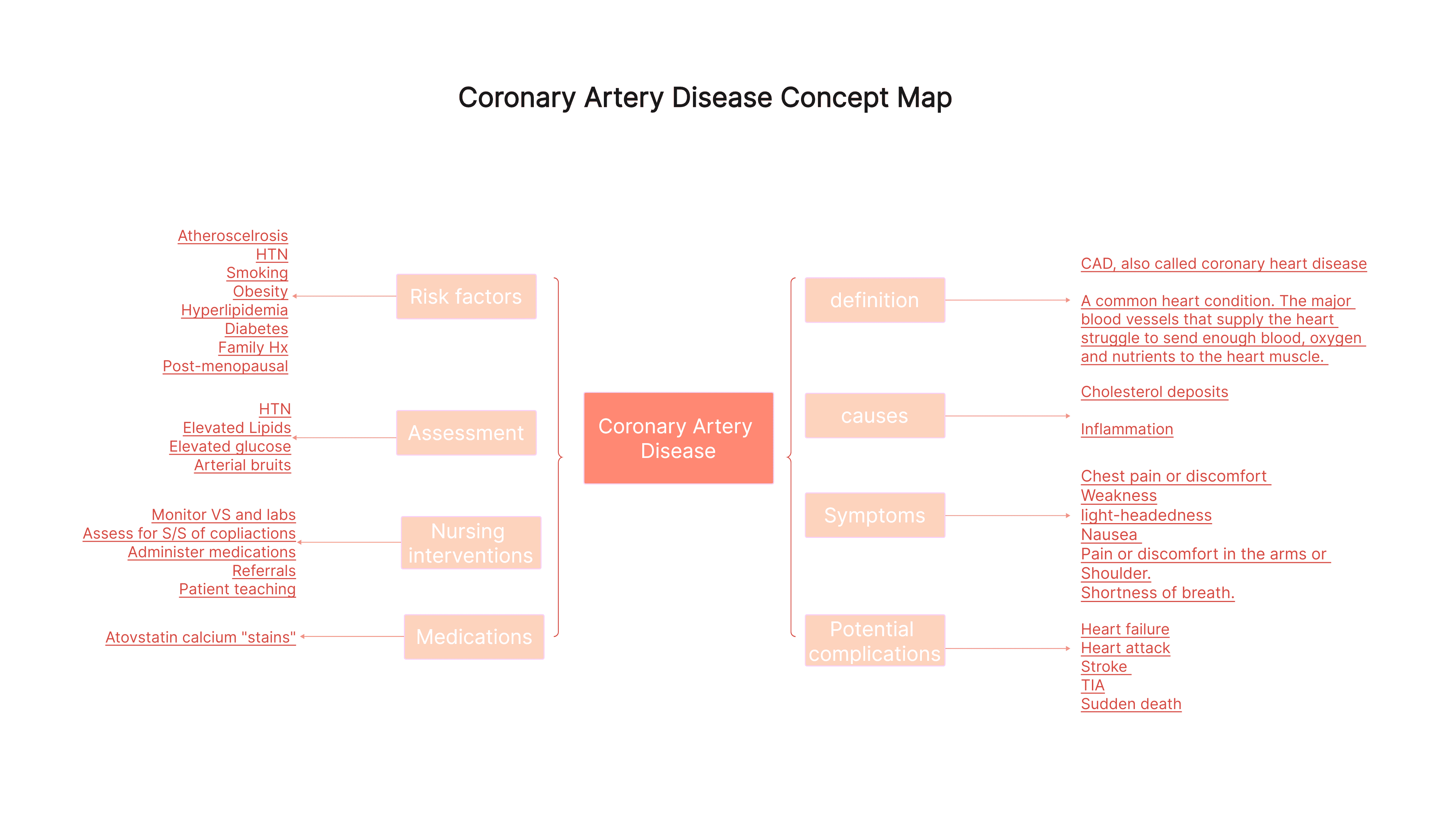About This Template
Feeling overwhelmed by congestive heart failure (CHF)? Our FREE Congestive Heart Failure Concept Map Template offers a clear visual framework to organize information and gain a deeper grasp of this condition.
What is Congestive Heart Failure?
Congestive heart failure (CHF) doesn't necessarily mean your heart has completely stopped working. Instead, it signifies a weakening of the heart muscle, hindering its ability to pump blood efficiently throughout your body. This inefficiency disrupts the normal blood flow, causing a backup of blood in the heart and circulation system. Over time, this backup can lead to a buildup of fluid in various parts of the body, most commonly the lungs and legs.
There are two main types of congestive heart failure:
- Systolic heart failure: This occurs when the main pumping chamber of the heart, the left ventricle, weakens and struggles to contract forcefully. This reduces the amount of blood ejected with each heartbeat.
- Diastolic heart failure: In this type, the heart muscle becomes stiff and loses its ability to relax and fill completely with blood between beats. This reduces the amount of blood the heart can hold, leading to inefficient pumping.
Symptoms and Causes of Congestive Heart Failure
The symptoms of CHF can vary depending on the severity of the condition and the type of heart failure. However, some common symptoms include:
- Shortness of breath (dyspnea): This is a hallmark symptom of CHF, especially when lying down. It occurs because fluid buildup in the lungs makes it difficult for oxygen to reach the bloodstream.
- Fatigue and weakness: As your heart struggles to pump blood, your body's tissues don't receive enough oxygen and nutrients, leading to fatigue and decreased energy levels.
- Swelling in legs and feet (edema): Fluid buildup due to CHF can cause swelling, typically in the ankles and feet, but it can also affect the abdomen.
- Rapid heart rate (palpitations): Your heart may beat faster to try to compensate for the decreased pumping efficiency.
- Persistent cough: Fluid buildup in the lungs can irritate the airways and trigger a cough that doesn't go away.
- Rapid weight gain: This can occur due to fluid retention in the body.
- Reduced appetite: Fluid buildup in the abdomen can make you feel uncomfortably full and reduce your appetite.
- Abdominal pain: Fluid accumulation in the abdomen can cause discomfort or pain.
- Confusion: In severe cases, especially in older adults, CHF can lead to confusion or difficulty concentrating due to decreased blood flow to the brain.
Several factors can contribute to the development of congestive heart failure:
- Coronary artery disease (CAD): This is the leading cause of CHF. It occurs when a buildup of plaque narrows the coronary arteries, reducing blood flow to the heart muscle and weakening it over time.
- High blood pressure (hypertension): Over time, uncontrolled high blood pressure can strain the heart and lead to heart muscle damage.
- Heart valve problems: Diseased heart valves can disrupt the normal flow of blood through the heart chambers, eventually leading to CHF.
- Weakened heart muscle (cardiomyopathy): Various conditions can weaken the heart muscle, including viral infections, certain medications, and genetic disorders.
- Diabetes: This chronic condition can damage blood vessels and contribute to heart problems, including CHF.
FAQ About the Congestive Heart Failure Concept Map
Who can benefit from using this template?
Anyone interested in understanding CHF, including patients, caregivers, and individuals concerned about their heart health.
What information should be included in the concept map?
Definition of CHF, symptoms, causes, risk factors (high blood pressure, diabetes), nursing diagnoses (fluid volume overload, decreased cardiac output), treatment options (medications, lifestyle changes, surgery), and patient education tips (diet, exercise, medication adherence).
Can I customize this template?
Absolutely! This is a flexible tool. Adapt it to include specific details relevant to your situation or area of interest.
Free Download Your Congestive Heart Failure Concept Map Template Today!
Empower yourself with knowledge! Download our FREE template today and unlock the power of visual learning. Click the Use Template button on this page to access this valuable resource.
